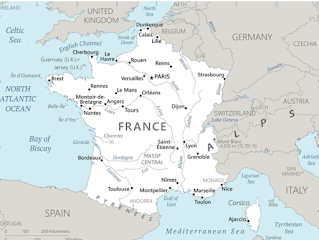
#17,801
Until relatively recently - with the notable exceptions of China, Indonesia, Egypt, Vietnam and Hong Kong - most of the world's nations have avoided the use of poultry avian influenza vaccination in favor of the long-standing OIE recommendation to `stamp out' HPAI infections by culling infected flocks.
That policy advised that vaccines should only be used as a temporary measure, stating that: `Any vaccination campaign must include an “exit strategy” i.e. a return to classic disease control measures.'
If properly designed and managed, however, a well-matched, and continually updated poultry vaccine campaign should be both safe and effective. But far too often (see Egypt: A Paltry Poultry Vaccine and J. Virus Erad.: Ineffective Control Of LPAI H9N2 By Inactivated Poultry Vaccines - China), those standards are only loosely followed.
Even though the United States is conducting HPAI poultry vaccine trials of their own, and has authorized the use of experimental H5 vaccines to protect endangered Condors, HPAI poultry vaccines are not currently approved for use in U.S. poultry.
Last summer France announced their intention to begin vaccinating high risk poultry (ducks) against H5N1 this fall, after testing showed a two-dose regimen provided adequate protection.
Yesterday the French MOA raised their avian flu risk level to `High' after four outbreaks were reported in the past week (see below), and this morning there are numerous media reports that the MOH - citing `New scientific evidence ' - has ordered a 3rd dose of the poultry vaccine for certain high risk poultry.
Although I've not found the official document (I'll update this blog when I get a link), multiple media sources are quoting the MOH this morning as ordering:
"New scientific evidence has led us to adjust the vaccination protocol to guarantee the best possible protection of animals and avoid any epizootic outbreak.
For this, a three-dose protocol will be applied from (this week) until March 15, 2024 in areas identified at risk and targeting mulard ducks"
This translated announcement from the French MOA.
Avian influenza: France placed at “high” risk level to protect poultry farms
Updated 06/12/2023While a first outbreak in livestock farming was detected in Morbihan at the end of November, and the infection dynamic in Europe continues, the Ministry of Agriculture and Food Sovereignty took the decision to raise to its maximum the level of epizootic risk with regard to highly pathogenic avian influenza (HPAI). Preventive measures are being strengthened to protect poultry farms.The continuing strong dynamic of HPAI virus infection recorded in Europe, while a first contamination of a farm had been detected a few days ago in France [1], has now led the public authorities to place all of the territory at high risk level with regard to HPAI. The decree was published this Tuesday, December 5 in the Official Journal .This decision, one week after an initial increase in the level of risk, ensures better protection of farms in the face of the threat represented by the strong circulation of the virus in migratory wildlife.The transition to “high” risk generalizes the following prevention measures throughout the territory :
- Closure or protection by nets of birds kept in establishments with fewer than 50 poultry or captive birds (farmyards, zoos);
- Shelter and protection of feeding and watering of birds in establishments keeping more than 50 poultry;
- Mandatory equipment of vehicles intended for the transport of waterflies over three days old with tarpaulins or equivalent preventing any significant loss of feathers and down by a full or empty truck;
- Prohibition of gatherings of poultry and captive birds;
- Ban on racing pigeon competitions until 04/10;
- Restrictions on the transport of calling birds and a ban on the release of game birds of the Anatidae family.
In areas at risk of diffusion (ZRD), i.e. with a high density of poultry farms, the following measures are made compulsory:
- HPAI virological screening during movements of batches of palmipeds ready to fatten between two farms, thus complementing the surveillance already put in place as part of the Official HPAI Vaccination Plan.
- Restriction of access, disinfection of vehicles.
- All applicable measures are described in the ministerial decree of 09/25/2023 .
These prevention measures complement the compulsory vaccination campaign launched in France since October 1 for commercial farms keeping more than 250 ducks. Surveillance, biosecurity and vaccination are complementary pillars of HPAI prevention.
With H5N1 well-entrenched in wild and migratory birds, many countries are reluctantly considering the move to poultry vaccination. The success or failure of this campaign in France has the potential to impact more than just the French poultry industry.
Stay tuned.